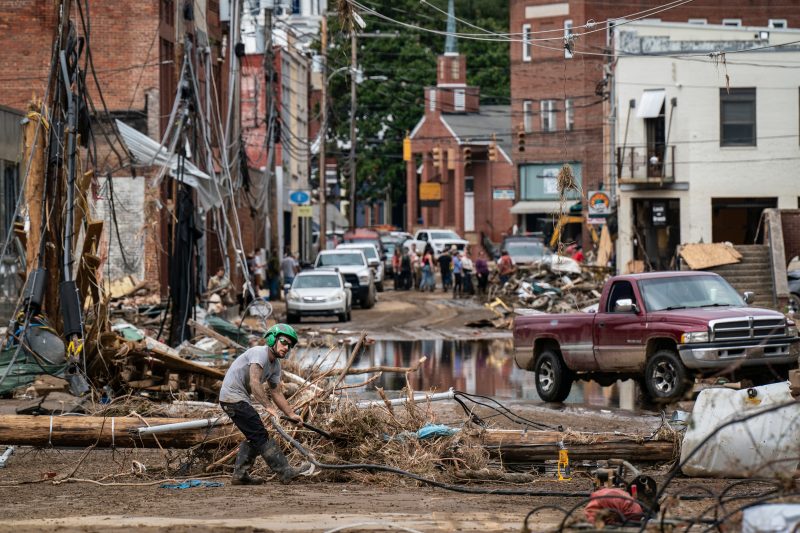The 2024 United States presidential election is already shaping up to be one of the most consequential in recent history. Amidst the usual swirl of political posturing and strategic maneuvering, a new factor has emerged that could potentially upend the established dynamics: the so-called Hurricane X-factor. This phenomenon, named for its unpredictable and potentially devastating impact on the electoral landscape, refers to the growing influence of extreme weather events, particularly hurricanes, on voter behavior and candidate messaging.
Historically, natural disasters have played a significant role in shaping public opinion and political outcomes. Hurricanes, in particular, have the power to disrupt lives, communities, and economies in a matter of hours, leaving lasting scars that often extend well beyond the physical damage. In the context of a high-stakes election like 2024, the potential for a major hurricane strike to influence voter attitudes and priorities cannot be overstated.
One need only look back to the aftermath of Hurricane Katrina in 2005 to see the profound impact that a natural disaster can have on the political landscape. The botched response to the crisis by the federal government, led by then-President George W. Bush, laid bare deep-seated inequities and failures in governance that reverberated far beyond the Gulf Coast region. The ensuing backlash against the administration and its handling of the disaster set the stage for a seismic shift in public opinion and helped shape the outcome of the 2008 election.
Fast forward to 2024, and the stage is set for a similar confluence of events. Climate change has intensified the frequency and severity of hurricanes in recent years, making the likelihood of a major storm impacting the election increasingly plausible. Against this backdrop, candidates are being forced to confront the reality of a new political calculus, one in which their response to a potential disaster could make or break their chances of victory.
The Hurricane X-factor is not just about the immediate aftermath of a storm, however. It also encompasses the broader policy implications of climate change and the need for proactive measures to mitigate its effects. As voters become increasingly concerned about the environment and demand action from their elected officials, candidates are being forced to reckon with the reality that climate change is no longer a fringe issue but a central tenet of political discourse.
In this new landscape, the ability of candidates to demonstrate leadership and a coherent strategy for addressing the challenges posed by extreme weather events will be critical. Those who fail to rise to the occasion risk alienating voters who are increasingly attuned to the urgency of the climate crisis and its implications for their own lives.
As the 2024 election approaches, the Hurricane X-factor looms large as a potent symbol of the intersection between politics, policy, and the environment. How candidates navigate this complex terrain could ultimately determine the outcome of the election and shape the course of American politics for years to come. Only time will tell whether they rise to the challenge or are swept away by the storm.



























